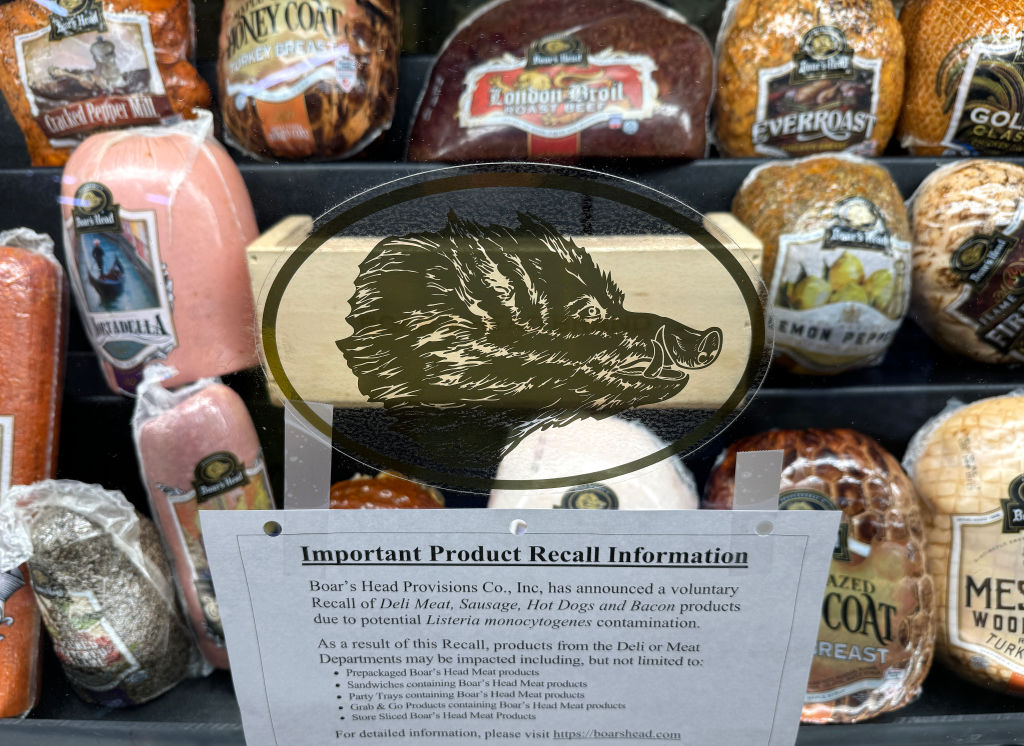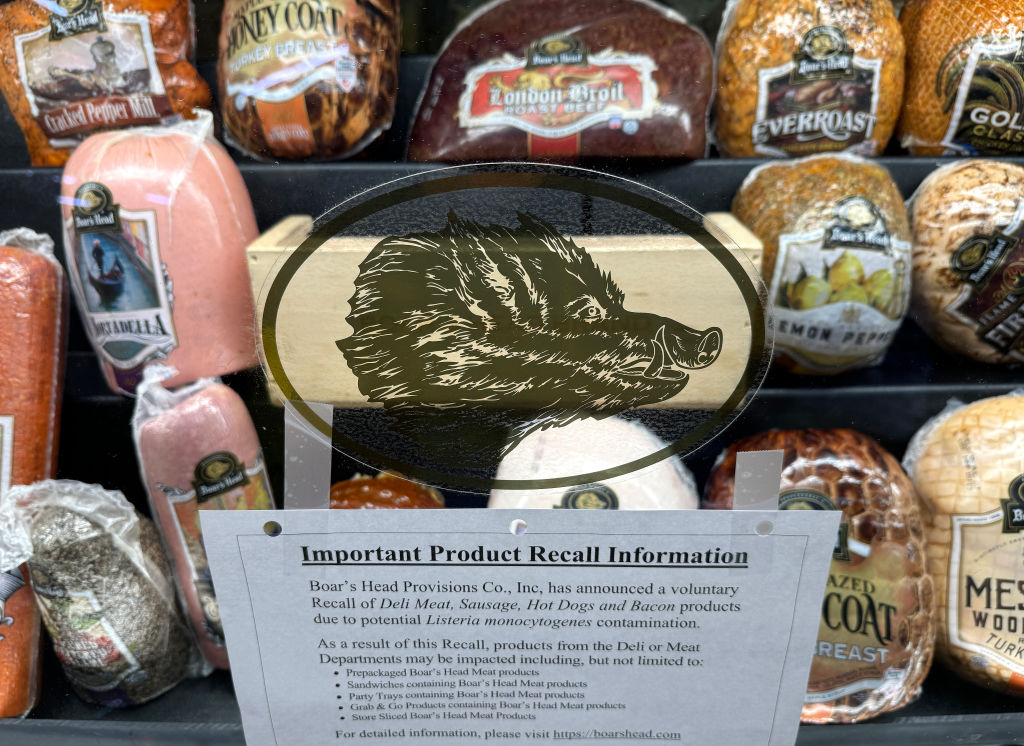Boar’s Head will “indefinitely close” the Jarratt, Virginia, meat plant tied to the listeria outbreak that killed at least nine people.
Boar’s Head said Friday it’s closing the Virginia plant tied to a deadly listeria outbreak.
The Sarasota, Florida-based company said it will also permanently discontinue production of liverwurst, the product that was linked to the deaths of at least nine people — including a New York resident and a New Jersey resident — and hospitalizations of about 50 others in 18 states total.
Boar's Head expressed regret and deep apologies for the outbreak in a statement on its website.
Get Tri-state area news delivered to your inbox. Sign up for NBC New York's News Headlines newsletter.
Boar’s Head said an internal investigation at its Jarratt, Virginia, plant found that the contamination was the result of a specific production process. The process only existed at the Jarratt plant and was only used for liverwurst, the company said.
The Jarratt plant hasn’t been operational since late July, when Boar’s Head recalled more than 7 million pounds of deli meats and other products after tests confirmed listeria bacteria in its products was making people sick.
In August, the New York State Health Department said in a statement that it was investigating 17 listeria cases throughout the state. Of those 17, eight were in New York City, two each were in Nassau and Suffolk counties on Long Island, and one was in Dutchess County, the Health Department said; the rest of the cases were across Upstate New York counties of Cayuga, Greene, Onondaga and Oswego.
No information was available regarding the death in New Jersey, nor were there any details provided about the person's identity.
The CDC said the listeria outbreak was the largest since a 2011 outbreak linked to cantaloupe. Health officials said refrigerators should be thoroughly cleaned and sanitized to prevent contamination of other foods. Any recalled product can be returned to stores for a refund, company officials said.
Click here for the full list of recalled products.
The problem was discovered when a liverwurst sample collected by health officials in Maryland tested positive for listeria. Further testing showed that the type of bacteria was the same strain causing illnesses in people.
Listeria infections are caused by a hardy type of bacteria that can survive and even thrive during refrigeration. An estimated 1,600 people get listeria food poisoning each year and about 260 die, according to the U.S. Centers for Disease Control. Infections can be hard to pinpoint because symptoms may occur up to 10 weeks after eating contaminated food.
The Jarratt plant had a troubled history. Government inspectors found 69 instances of “noncompliance” at the facility over the last year, including instances of mold, insects, liquid dripping from ceilings and meat and fat residue on walls, floors and equipment.
Boar’s Head said “hundreds” of employees will be impacted by the closure.
“We do not take lightly our responsibility as one of the area’s largest employers," the company said. “But, under these circumstances, we feel that a plant closure is the most prudent course.”
The company said it is appointing a new chief food safety officer who will report to its president. It is also establishing a safety council comprised of independent experts, including Mindy Brashears, a former food safety chief at the U.S. Department of Agriculture, and Frank Yiannas, a former deputy commissioner for food policy at the U.S. Food and Drug Administration.
“This is a dark moment in our company’s history, but we intend to use this as an opportunity to enhance food safety programs not just for our company, but for the entire industry,” the company said.
How can listeria get into deli meat?
Listeria bacteria thrive in moist environments, including soil and water and decaying vegetation and are carried by some animals. The hardy germs are typically spread when food is harvested, processed, transported or stored in places that are contaminated with the bacteria. When the bacteria get into a food processing plant, they can be tough to eradicate.
Listeria symptoms
Listeria infections typically cause fever, muscle aches and tiredness and may cause stiff neck, confusion, loss of balance and convulsions. Symptoms can occur quickly or to up to 10 weeks after eating contaminated food. The infections are especially dangerous for people older than 65, those with weakened immune systems and during pregnancy.
Does cooking kill listeria?
Listeria can survive and grow in food even when it's refrigerated, but the bacteria can be killed by heating foods to “steaming hot,” or 165 degrees Fahrenheit (74 degrees Celsius), the CDC says. People who are most at risk for illness should avoid the products or heat them before eating.
Most deli meats, however, are eaten cold. Because listeria can survive under refrigeration, it’s important to clean and sanitize any surfaces, including refrigerator drawers and shelves, that may have come in contact with the products, the CDC says.




